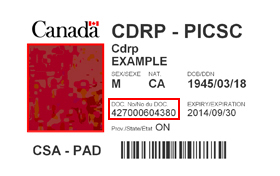Commercial Driver Registration Program (CDRP)
|
🔖 This article is part of the Customs Glossary Guide |
The Commercial Driver Registration Program (CDRP) is a regulatory framework established to maintain a comprehensive database of commercial drivers who operate commercial vehicles within a specific jurisdiction. The program is designed to enhance road safety, monitor driver qualifications, and ensure compliance with regulations. This article defines the Commercial Driver Registration Program, explores the scenarios in which it is used, and provides a guide on how to register as a commercial driver.

What is the Commercial Driver Registration Program (CDRP)?
The Commercial Driver Registration Program is a government initiative that requires commercial drivers to register their information with the appropriate regulatory authority. The program's primary purpose is to promote safety on the roads by ensuring that commercial drivers meet the necessary qualifications, possess valid licenses, and have a clean driving record. By centralizing driver information, the CDRP enables authorities to identify and address potential safety concerns and monitor driver compliance with regulations.
Usage Scenarios of the Commercial Driver Registration Program:
Commercial Vehicle Operation:
Scenario: A truck driver operates a commercial vehicle, such as a tractor-trailer, for-hire passenger carrier, or hazardous materials transporter. CDRP Usage: The Commercial Driver Registration Program is used to verify the driver's qualifications, medical fitness, and driving history to ensure they are eligible to operate a commercial vehicle safely.
Cross-Border Trucking:
Scenario: A commercial driver crosses international borders to deliver goods between countries. CDRP Usage: The CDRP assists in verifying the driver's qualifications and compliance with the appropriate cross-border regulations, enhancing safety and security during international transportation.
Transporting Hazardous Materials:
Scenario: A driver transports hazardous materials that require specialized training and certification. CDRP Usage: The Commercial Driver Registration Program ensures that drivers transporting hazardous materials meet the necessary training and certification requirements, reducing the risk of incidents involving dangerous goods.
Periodic Driver Screening:
Scenario: Employers or regulatory authorities periodically screen commercial drivers for compliance and safety standards. CDRP Usage: The program provides access to driver records and qualifications, allowing employers and authorities to conduct periodic screenings to assess driver performance and safety.
How to Register for the Commercial Driver Registration Program:
Registering for the Commercial Driver Registration Program typically involves the following steps:
Eligibility Check: Ensure you meet the requirements for commercial driving, including age, driving experience, and any specialized certifications for specific types of commercial vehicles.
Gather Necessary Documentation: Prepare all required documents, such as a valid driver's license, medical certificate (if applicable), proof of citizenship or residency, and any endorsements or special permits needed.
Application Submission: Complete the registration application provided by the relevant regulatory authority responsible for the Commercial Driver Registration Program.
Background Check and Medical Examination: Undergo a background check and a medical examination to assess your fitness for commercial driving.
Pay Applicable Fees: Some jurisdictions may require payment of fees for processing and issuing the commercial driver registration.
Receive Confirmation: Upon successful completion of the registration process, you will receive confirmation of your commercial driver registration.
Conclusion:
The Commercial Driver Registration Program is a vital system that ensures the safety and compliance of commercial drivers operating on the roads. By maintaining a comprehensive database of qualified and eligible drivers, the CDRP enhances road safety and minimizes risks associated with commercial vehicle operation. Commercial drivers play a crucial role in various industries, and their registration in the program is an essential step towards promoting responsible and safe driving practices.